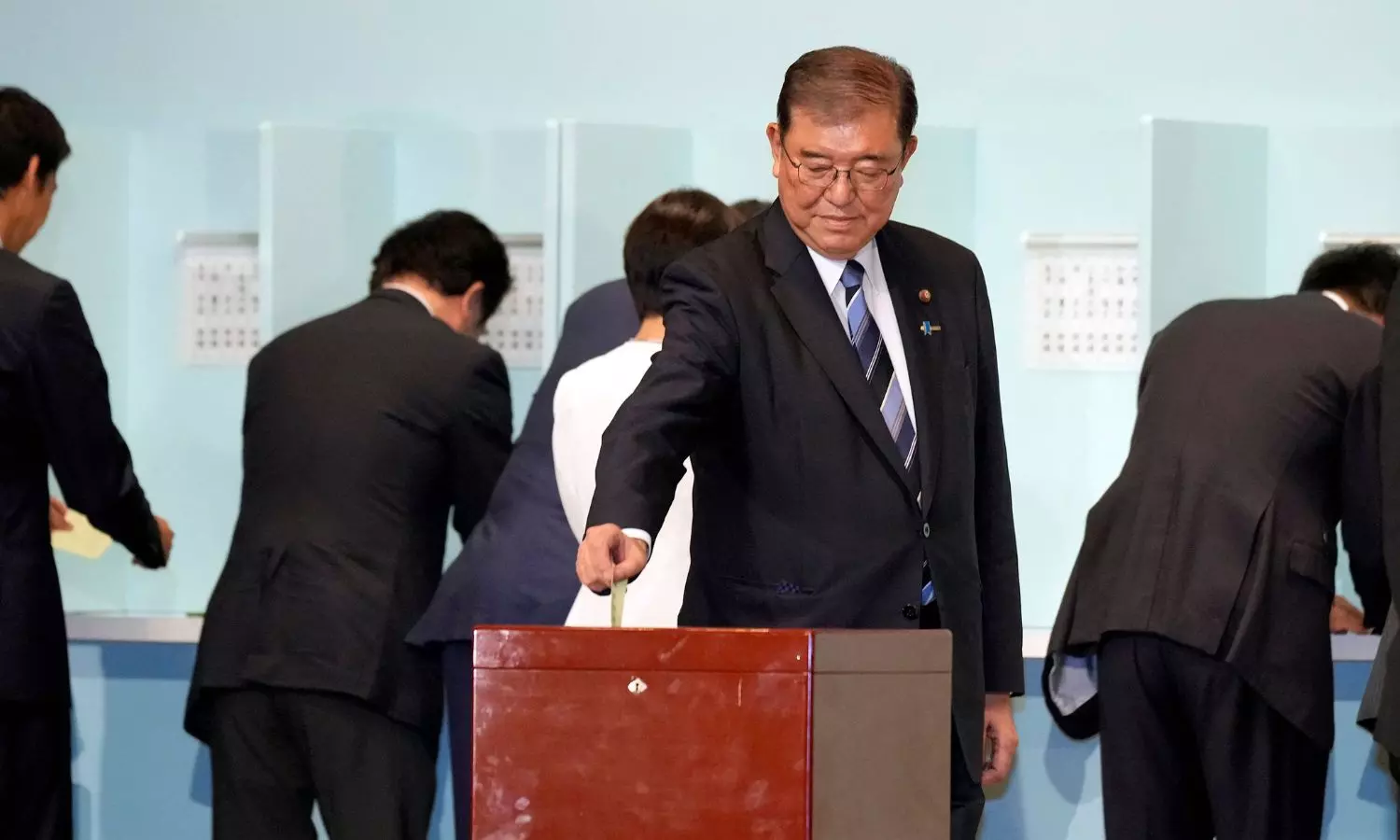
Tokyo: Former Defense Minister Shigeru Ishiba won an election to lead Japan’s governing party Friday and will become the new prime minister next week.
The party leadership win is a ticket to the top job because the Liberal Democratic Party’s ruling coalition currently controls parliament.
Considered a defense policy expert, Ishiba has proposed an Asian version of the NATO military alliance and a more equal Japan-U.S. security alliance. Ishiba is a supporter of Taiwan’ s democracy. He calls for an establishment of a disaster management agency in one of the world’s most disaster-prone country.
A record nine candidates, including two women, ran in a vote decided by the party’s lawmakers and grassroots members.
No one won a majority in the first round of voting, forcing a runoff between Ishiba and Economic Security Minister Sanae Takaichi, a staunch conservative who ran against Kishida in 2021. Takaichi would have become become Japan’s first female prime minister.
The current p rime minister, Fumio Kishida , has been dogged by party corruption scandals, and the LDP was looking for a fresh leader in hopes of regaining public trust before a looming general election.
The vote was limited to LDP members of parliament and about 1 million dues-paying party members. That’s only 1% of the country’s eligible voters.
Past votes were often determined by the party’s powerful faction leaders, but all but one of the six factions have announced their dissolution following the corruption scandals .
There’s widespread worry among experts that the removal of faction support could return Japan to an era similar to the early 2000s, which saw “revolving door” leadership changes and political instability.
A succession of short-lived governments hurts Japanese prime ministers’ ability to set up long-term policy goals or develop trusted relations with other leaders.
On Tuesday, Kishida and his Cabinet ministers will resign. Ishiba, after being formally elected in a parliamentary vote, will then form a new Cabinet later in the day.
The main opposition — the liberal-leaning Constitutional Democratic Party of Japan — has struggled to build momentum, despite the LDP scandals. But experts say its newly elected leader, centrist former Prime Minister Yoshihiko Noda, is pushing a conservative shift for the party, could trigger a broader political re-groupingsa.





